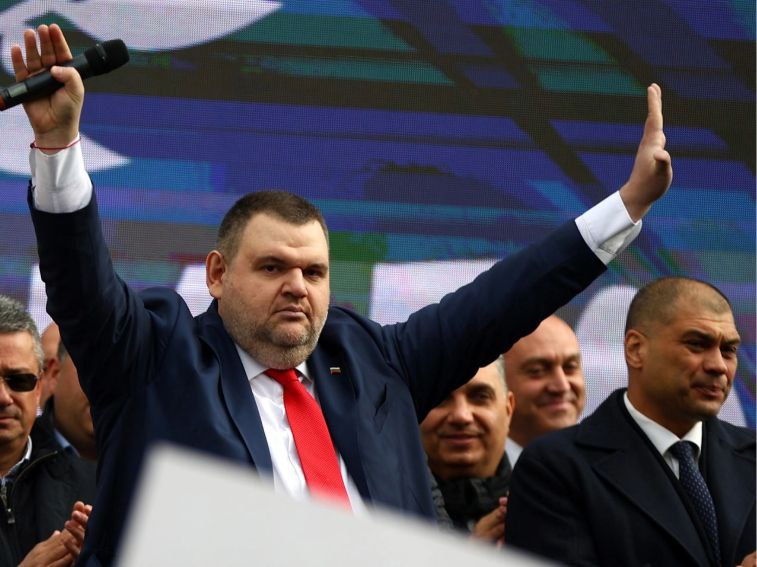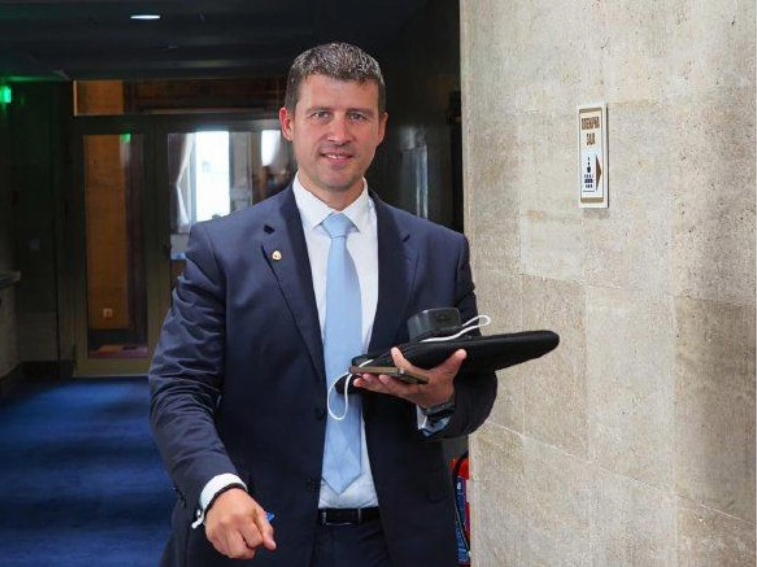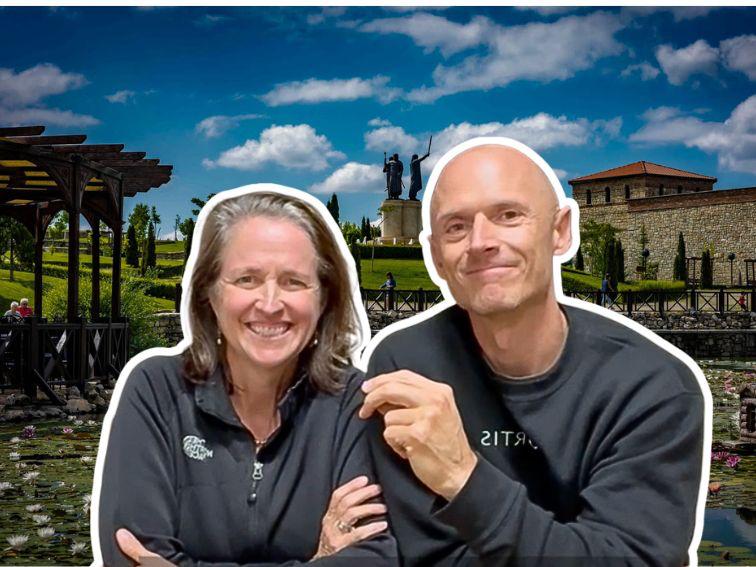The German newspaper “Die Welt” published an extensive article claiming that arrests are increasing in Bulgaria against people who oppose corruption, with a focus on one politician and entrepreneur who has long been sanctioned by the USA. "Critics warn of a dramatic turn that threatens the stability of Europe", reports the German media.
Five years ago, people in Bulgaria took to the streets to protest against government corruption. It felt like the beginning of a new era. The party “We Continue the Change,” which emerged from the protests and is led by political newcomers and Harvard graduates Kiril Petkov and Asen Vassilev, brought them to the top as prime minister and finance minister, leading to legal reforms and economic stability.
The achievements are historic. In January, Bulgaria will join the eurozone. From this year, the European country is a member of the Schengen Area. A major contribution to this came from the exposure and fight against mafia structures involving criminals, state officials, and companies on the EU’s border with Turkey. Because of this, members of “We Continue the Change” were threatened by organised crime, reports “Die Welt.” These were not isolated incidents in a country that ranks at the bottom of the EU corruption indices.
But behind the scenes of progress, a strong counter-movement is forming, in which the old networks between politics and the judiciary are regaining their power.
Opposition figures and anti-corruption activists feel persecuted, and talk is already emerging of a dictatorship like that in Belarus, where opponents are arrested. Corruption also opens the door for Kremlin influence in the strategically located NATO state on the Black Sea, the article says.
Despite the upheaval following the protests, the political situation remains unstable. In the past four years alone, Bulgaria has held six elections. The party system is fragmented, reflecting a division among the population. One half seeks deeper EU integration, the other half leans toward traditional ties with Russia. Petkov’s support for Ukraine as prime minister after the Russian invasion—sending weapons and cutting Bulgaria off from Russian energy oligarchs—earned his party many opponents.
Since 2024, the state has been governed by a government led by Prime Minister Rosen Zhelyazkov, a member of the conservative party GERB. The powerful chairman is Boyko Borisov, who was prime minister before the 2020 protests and under whose rule corruption and misuse of EU funds flourished. Nevertheless, GERB has long been a member of the European People’s Party.
The most recent case of repression, emphasised by “Die Welt,” is the arrest of Blagomir Kotsev, mayor of Varna—a geopolitically important port city on the Black Sea. The 54-year-old Blagomir Kotsev, an economist and member of “We Continue the Change,” was arrested on July 8, before the vote on the municipal budget. The charges against Kotsev are corruption, money laundering, and participation in a “criminal group.” His wife, Kamelia Kotseva, posted on Facebook that government agents searched for hours, even the rooms of their two-year-old son and newborn daughter.
Kotsev is being held under heavy security in detention in Sofia, with a court hearing scheduled for this Thursday. The liberal group in the European Parliament, “Renew Europe,” to which “We Continue the Change” belongs, considers this a clear case of “political persecution and dangerous abuse of state power.” The charges against Kotsev are said to be “unfounded.” Bulgarian agencies of the chief prosecutor and the anti-corruption commission have been turned into “instruments for political repression,” says the declaration from “Renew Europe,” which calls for the immediate release of the mayor.
Svenja Hahn, a member of the European Parliament, wrote in a letter to the European Commission that in recent months, cases of political interference in judicial matters in Bulgaria have increased. She warns of the growing use of “presidential power” to pursue opposition members.
These accusations are not only coming from the political field. Andrey Yankulov, a legal expert at the Anti-Corruption Fund, an NGO supported, among others, by the Konrad Adenauer Foundation, also told “Die Welt” about a “pattern” showing that judicial authorities are being improperly used as “tools in the hands of those in power.”
The name of the oligarch and politician Delyan Peevski constantly appears in this context. His party, “New Beginning”, supports the current government in the three-party coalition in Bulgaria. The 44-year-old Peevski has been sanctioned for years by the USA under the “Magnitsky Act,” which punishes human rights violations worldwide. He is accused of “regular corruption,” “trading influence and bribes to avoid public scrutiny,” and “exercising control over key institutions and sectors of Bulgarian society.”
The procedures follow a certain pattern. Investigative journalists accuse him of stealing millions from EU funds, involvement in crimes, smuggling, and corrupt ties with Moscow. European prosecutor Teodora Georgieva said in an interview that she was threatened by the oligarch during investigations into EU funds misuse. In Bulgaria, however, there has never been a court case against Peevski. GERB chairman Borisov recently emphasised his good cooperation with Delyan Peevski. He can “count on” the votes of Peevski’s MPs, said Borisov in an interview, adding that their common goal is smooth accession to the eurozone. Borisov is known for sending signals that are easily heard in Brussels. But as a eurozone member with massive deficiencies in the rule of law, Bulgaria could become a much bigger problem. Critics suspect that in return for his political support, Peevski gains influence over the judiciary to pursue his interests and eliminate his opponents. Since the new government took office in 2024, the Anti-Corruption Fund has reported an increase in cases against opposition figures—all of whom, “without exception, are political opponents of Delyan Peevski,” the NGO’s report states.
The supposed evidence always leaks to certain media outlets; the “real goal” is to “publicly discredit” political opponents and keep others in dependency, “explaining the consequences” if they behave differently, the report says.
It is also noteworthy that for months, Peevski has been visiting mayors and local politicians as part of a “regional development” initiative and has taken photos with them. The fact that he takes action against those who refuse to cooperate—such as in the case of the jailed mayor of Varna—raises suspicion that independent journalists in Bulgaria have long voiced.
Former Prime Minister Kiril Petkov told “Die Welt” that Peevski’s power is based on a “corrupt deal with Borissov” from GERB. “This agreement even paralyses the current Bulgarian prime minister, who cannot govern without the approval of the sanctioned oligarch.” But according to Petkov, this is a much bigger problem—Russia’s influence on a strategically important NATO country. During his term, his party “We Continue the Change” revealed numerous cases of Kremlin bribery of state officials. For example, a former advisor to his predecessor, Borisso, drove an SUV paid for by a Russian-controlled energy company.
Bulgaria is flooded with Russian disinformation.
During Borisov’s term, Bulgaria remained 100% dependent on Russian gas, even though the “TurkStream” pipeline, built with taxpayer money, needed only a link through Greece to receive supplies from other countries. Later, Petkov even ordered Borisov’s arrest, but Bulgarian prosecutors released him. For years, Bulgaria has also been overwhelmed by Russian disinformation campaigns. “Putin uses corruption as a foreign policy tool,” says Petkov—these are “the same people who wake up each day wanting to steal from the state and those doing business with the regime in Moscow.” Petkov also calls oligarch Peevski “Putin’s servant.” For example, at present Peevski is blocking the delivery of important aid to Ukraine, including the sale of nuclear reactors that Kyiv has long sought for its energy security. Nevertheless, Bulgaria “surprisingly” rejected the sale of two Russian reactors stored for years at a site near the Danube, since the government had long abandoned plans to build a power plant there. Former Prime Minister Petkov also suspects geopolitical interests behind the arrest of the mayor of Varna. The Black Sea port is an important security factor for NATO’s eastern flank. “The Peevski case reveals that Europe is incapable of standing up to Putin’s agents within its institutions,” says Petkov. He also believes that the European People’s Party (EPP) bears responsibility for turning a blind eye to these developments. “Putin’s success depends on figures like Peevski,” says Petkov—and Europe’s survival depends on stopping them.
Philipp Volkmar-Schluck, international editor at “Die Welt”, focused on the Middle East, China, and Southeast Europe.
Join our Telegram community HERE.













Коментари
Статията има 0 коментара